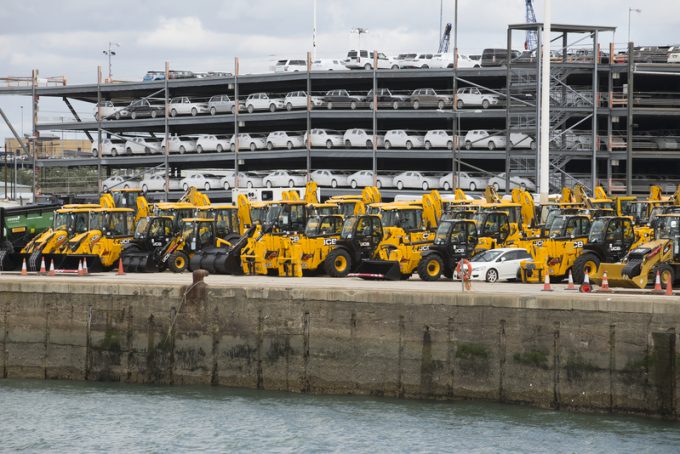Brexit: import checks come into force, hitting SMEs
Delays, confusion, costs – it’s all normal now in the world of UK trade. From ...

Britain’s automotive manufacturers will come under huge strain if “posturing” politicians really believe WTO rules can supplant an agreement with the European Union.
After car manufacturers Honda and Aston Martin said WTO tariffs would increase car prices by £1,500, an industry source told The Loadstar the tariffs would lead to chaos.
“These people leading the country blandly talk about WTO rules as though they are just something to be implemented,” said the source. “Do they not realise the costs involved?
“Companies will need to produce fiscal customs declarations and then there will need to be customs agents to approve them.
“One large forwarder suggested it would need to recruit 100 new staff, and UK customs will require 3,000-5,000 agents – where will they come from, and how will they be trained?”
The source said a realistic time frame to train a customs agent was around two years – “although some say as many as five years”.
The source said: “We have 20 ferries a day coming in from Dover bringing in trucks with one to two minutes’ dwell time, not to mention those brought through the Channel Tunnel.
“There is no spare time for any sort of delay that additional customs requirements would bring – the cost to the UK and shippers would be astronomical.”
European government affairs manager for Honda Patrick Keating told a Commons select committee yesterday that every 15 minutes of delays at Customs could cost manufacturers up to £850,000 a day. Honda relies on 350 trucks a day from Europe, with just one hours’ worth of parts held on production lines in the UK.
“I wouldn’t say that the just-in-time manufacturing model wouldn’t work, but it would certainly be very challenging,” he said.
Chris Saunders, director of group external relations for auto parts company GKN, said: “The risk for us is a chaotic Brexit, and hold-ups in the ports. And you could have the world’s best processes in Dover, but if you don’t have it in Calais, that’s a serious problem.”
Mr Keating said WTO tariffs would place the UK at a disadvantage, with Honda importing two million components a day from Europe.
“WTO tariffs are 10% on vehicles and 4.5% on components – we export 35% of cars manufactured in the UK to the EU and import 40% of parts from the EU,” he said.
Aston Martin’s chief financial officer, Mark Wilson, echoed Mr Keating’s comments, telling the committee his company sourced 60% of its components from the EU.
Mr Keating told The Loadstar Honda had yet to assess supply chain costs with “a great degree of granularity”.
He added: “But you could see a scenario where friction/delays lead to increased trucking costs – or there being a need to invest in warehousing and stock as a buffer against delays.”
Second-tier supplier Applied Component Technologies’ chief executive, Dermot Sterne, told the committee that holding stock was not something companies wanted to do.
“But sadly, that’s probably what we’ll have to do [after April 2019],” he said. “No one wants cashflow to be tied up in stock. The transitional period should be as long as it needs to be.”
Mr Sterne also cited the importance of unimpeded EU access, noting half of ATC’s raw materials were sourced from Europe and were not available in the UK.
“If we leave without a deal, we would halve our profits, and if you add a weak economy it would be really challenging. I can’t think of a worse situation than ‘no deal’,” said Mr Sterne.
“We are not an AEO – the freight forwarder does it for us. But having to do that in the EU is a frightening prospect and would make us less competitive.
“It will have an enormous effect if we are not in the Customs Union, and large parts of our business will disappear under a WTO tariff.”
While Mr Sterne admitted the potential unsustainability for operating under WTO rules, Mr Keating denied this would be the case for car manufacturers.
He told The Loadstar, WTO tariffs would “certainly” have an impact on competitiveness, and add costs that would have to be managed – but these would not be unsustainable.
“Honda remains keen for a transitional deal to give us, our suppliers and government sufficient time to invest in people, systems and procedures,” he added.
“These will minimise friction at the borders as we leave the Customs Union, and any future EU-UK deal should contain measures to ensure trade is as frictionless as possible.”
GKN’s Mr Saunders added: ”Any new Customs plans is not as good as being in the single market and the Customs Union. We are sceptical the government can deliver… within the political constraints they have created for themselves.”
Comment on this article